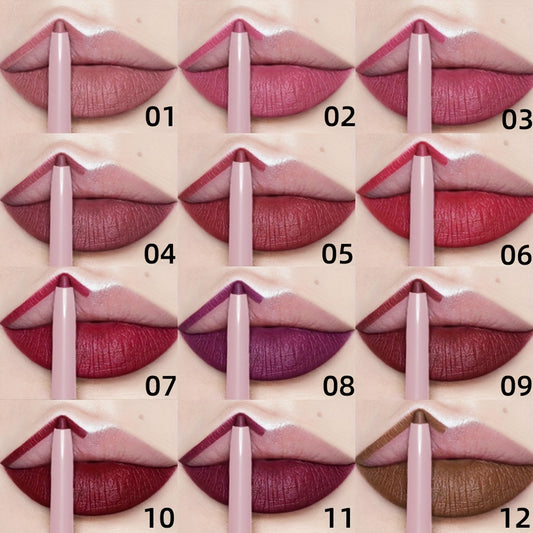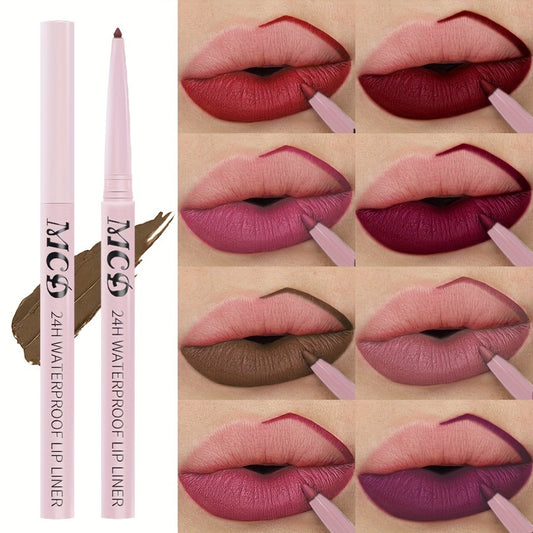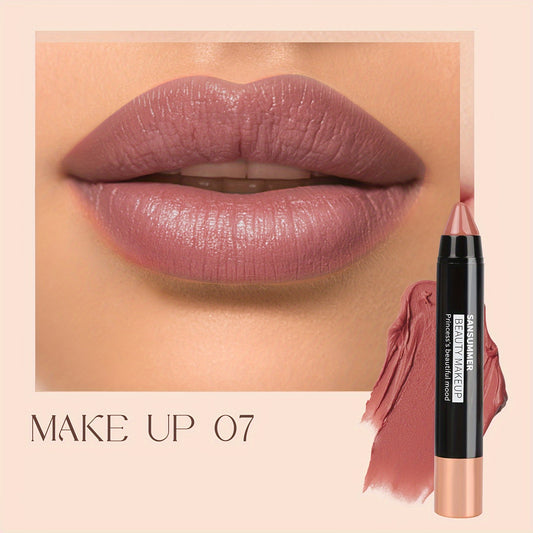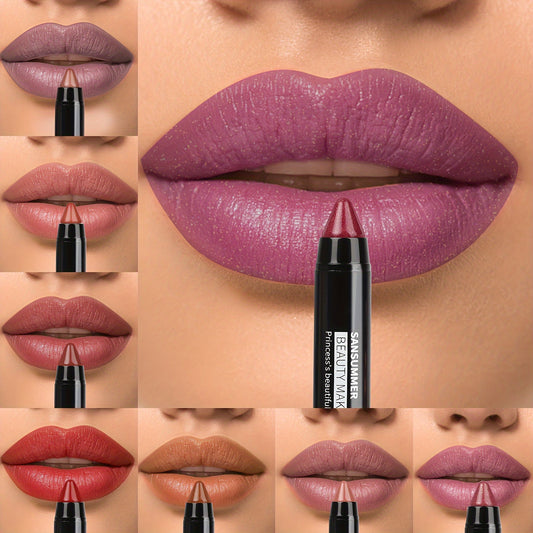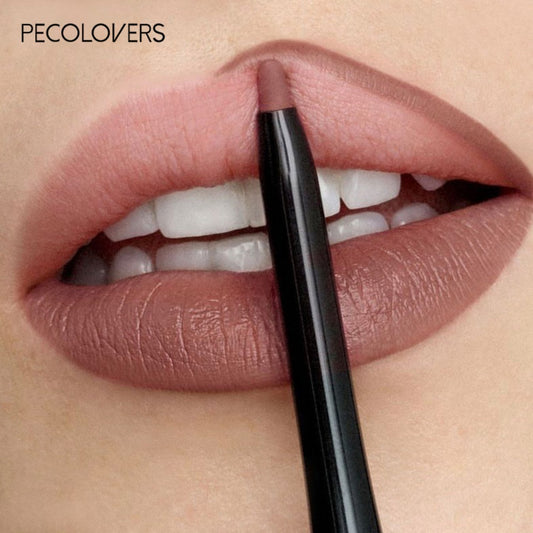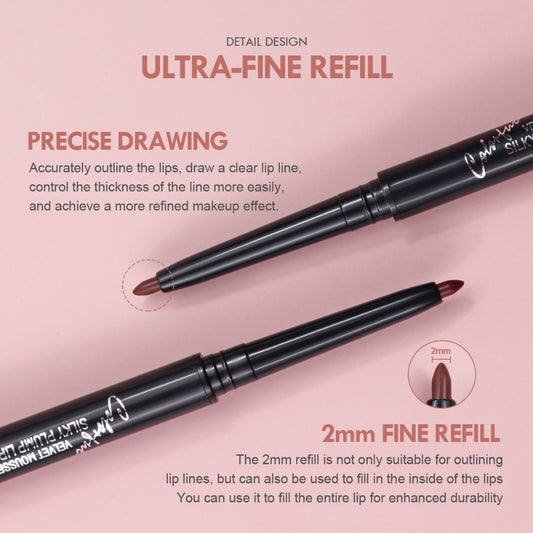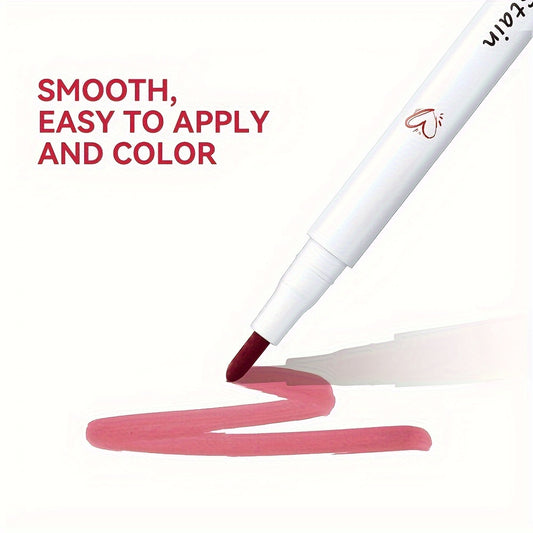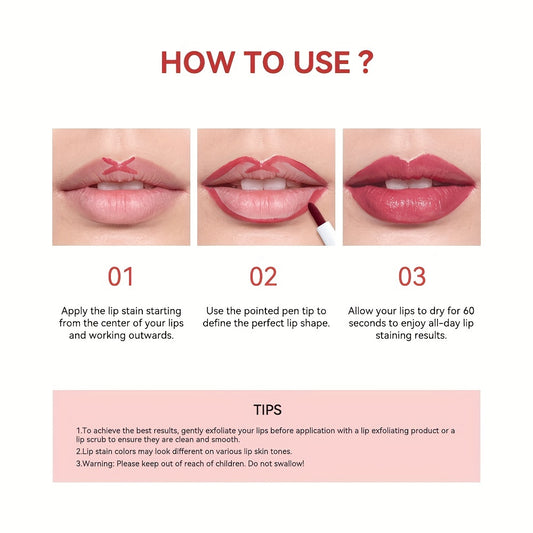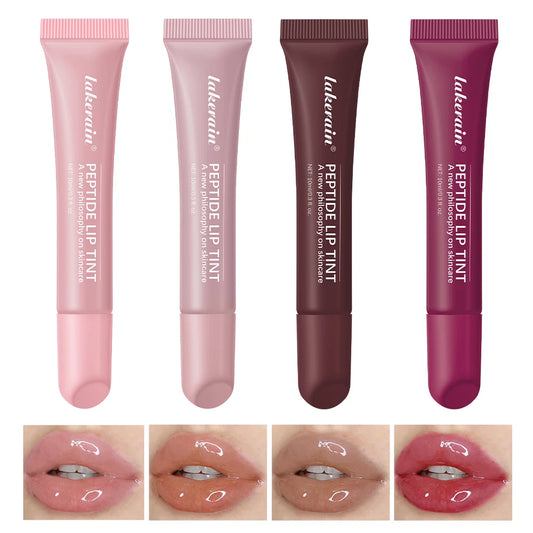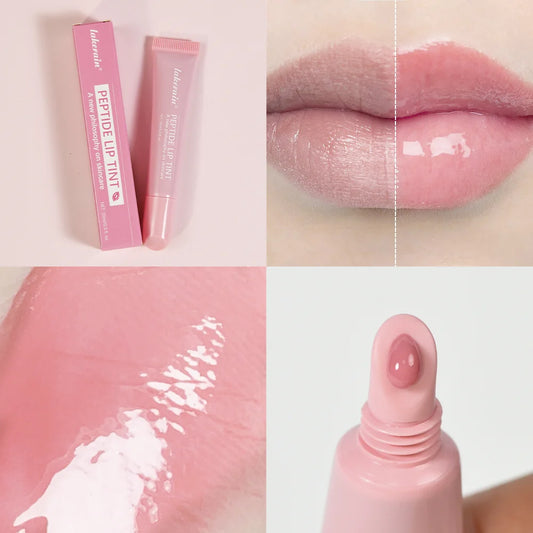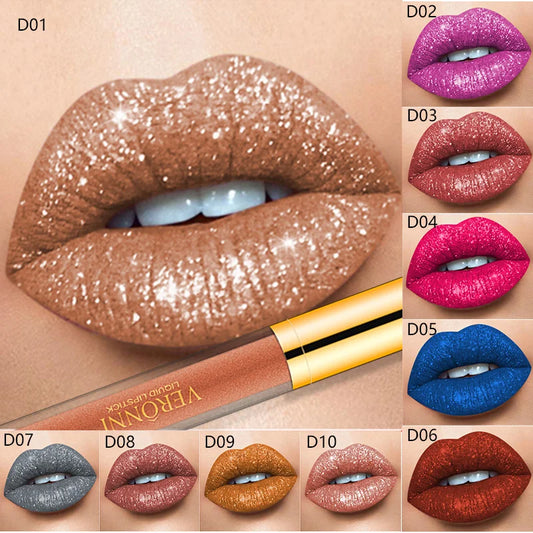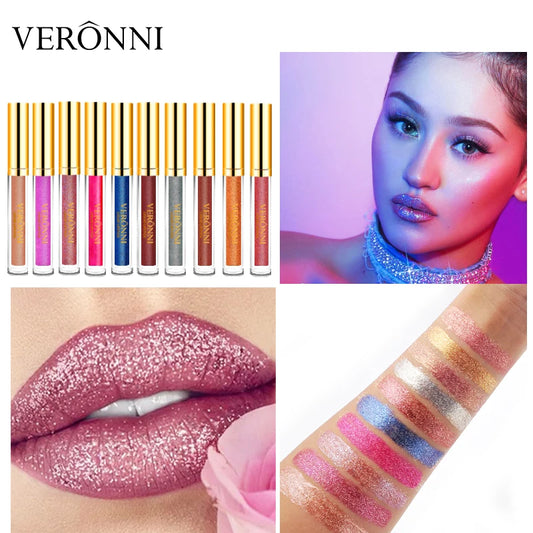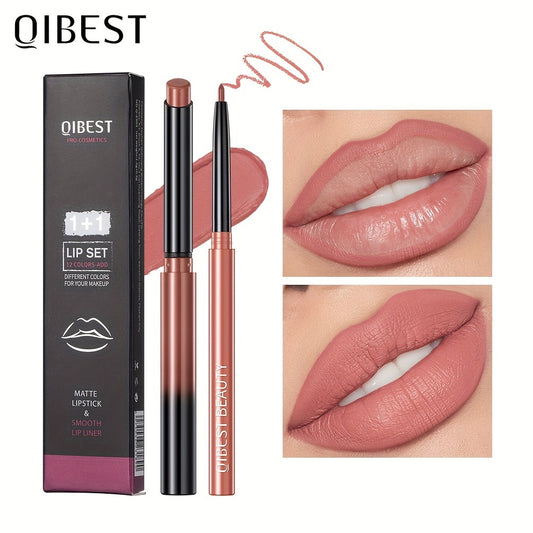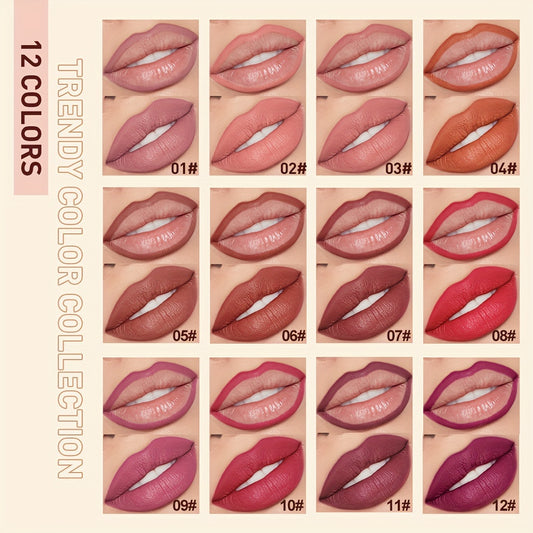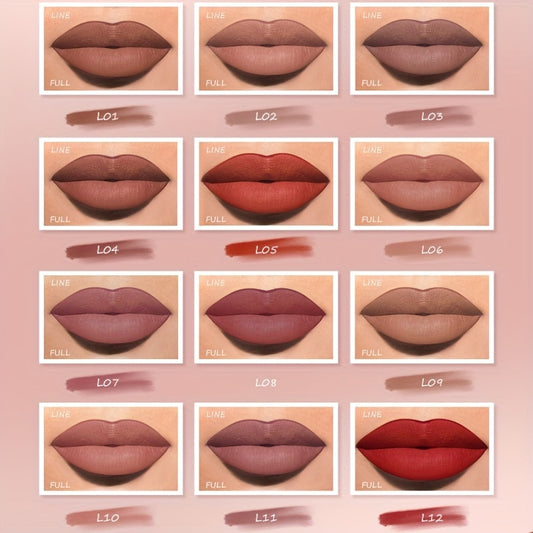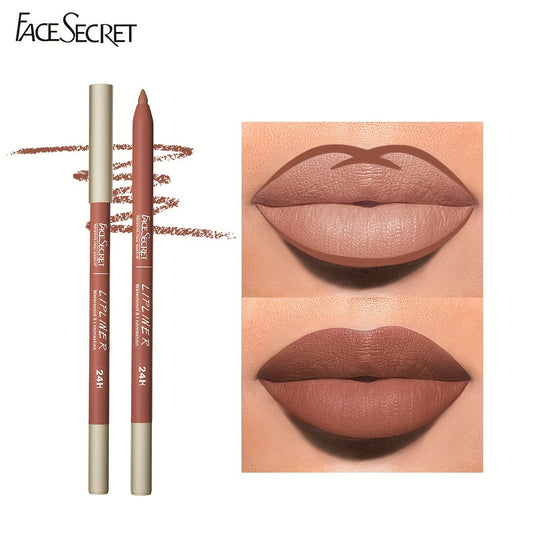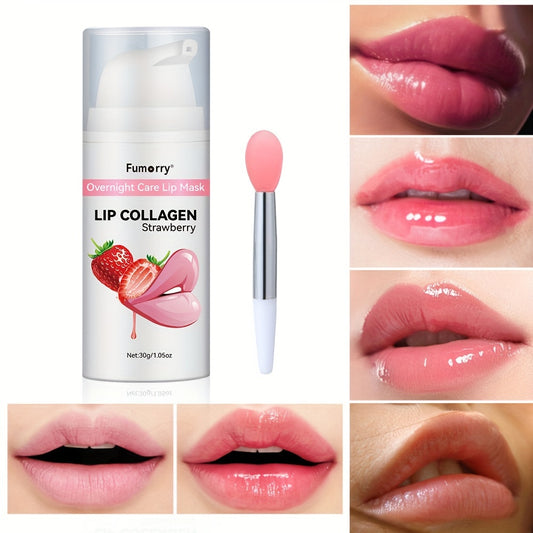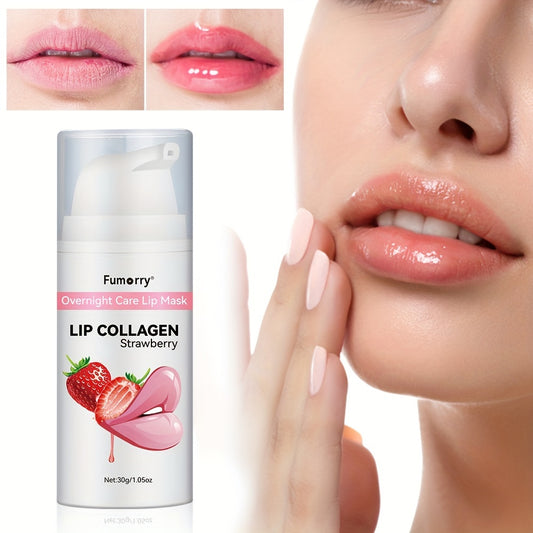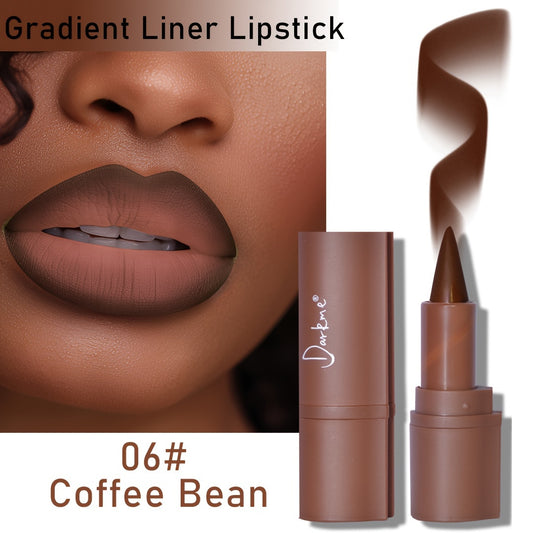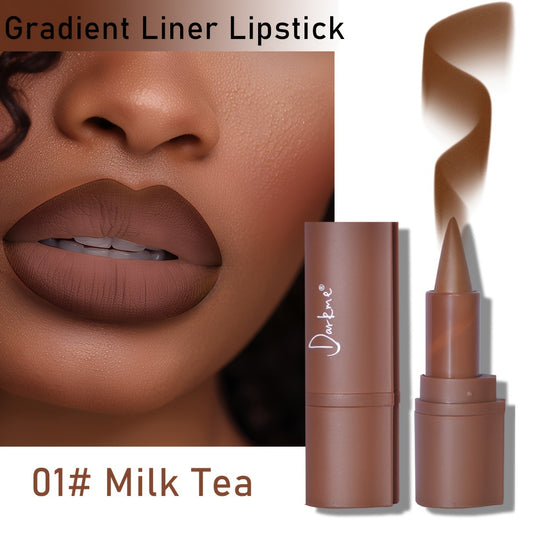Understanding Dry Lips Causes: Common Triggers and Effective Remedies
Share
Dry lips can be a real nuisance, affecting not just how you feel but also how you look. They can crack, peel, and sometimes even bleed. Understanding the dry lips causes is essential to finding the right solutions. In this article, we will explore the common triggers for dry lips and some effective ways to remedy the situation. Whether it's environmental factors, habits, or nutritional issues, we’ve got you covered with tips to keep your lips healthy and hydrated.
Key Takeaways
- Dry air, sun, and cold weather can all lead to dry lips.
- Habits like licking or biting your lips can worsen the dryness.
- Nutritional deficiencies, especially in vitamins and minerals, can contribute to chapped lips.
- Allergic reactions to cosmetics or food can also cause irritation.
- Using the right lip care products is essential for prevention and treatment.
Common Environmental Triggers
Environmental factors can really mess with your lips. It's not just about forgetting your lip balm; sometimes, the very air around you is the culprit. Let's look at some common environmental triggers that lead to dry, cracked lips.
Dry Air Conditions
Dry air is a huge offender. When the air lacks moisture, it pulls it from wherever it can find it—including your lips. This is especially true during winter months when the humidity drops, and indoor heating systems are blasting hot, dry air. Think of your lips like a sponge; in a dry room, they'll just shrivel up. I've noticed this every winter; my lips feel like sandpaper no matter how much water I drink.
Sun Exposure
We all know the sun can damage our skin, but many forget about their lips! Lips don't have melanin like the rest of our skin, so they're super vulnerable to UV rays. Too much sun can lead to sunburned, chapped lips. It's not just about the summer heat, either; sun exposure during winter can be just as harmful, especially if you're skiing or snowboarding at high altitudes. I learned this the hard way after a ski trip last year – my lips were peeling for days!
Cold Weather Effects
Cold weather is a double whammy. Not only is the air dry, but the cold itself can irritate your lips. The combination of wind and low temperatures can strip away moisture, leaving them feeling tight and uncomfortable. Plus, who wants to apply lip balm when it's freezing outside? It's a recipe for disaster. I always find myself reaching for a hydrating lip balm more often when the temperature drops.
Behavioral Factors Contributing to Dry Lips
It's easy to overlook how our own habits can make dry lips worse. Sometimes, the things we do without even thinking are the biggest culprits. Let's take a look at some common behavioral factors that contribute to this issue.
Lip Licking Habits
Lip licking might seem like a quick fix for dry lips, but it actually makes the problem worse. Saliva contains enzymes that break down food, and when it evaporates, it takes moisture away from your lips. This creates a cycle of dryness, leading to more licking and further dehydration. It's a tough habit to break, but awareness is the first step. Try to notice when you're doing it and consciously stop yourself. Keeping lip balm handy can also help reduce the urge to lick.
Biting and Picking
Biting or picking at your lips, especially when they're already dry and flaky, can cause significant damage. This behavior disrupts the delicate skin barrier, leading to irritation, inflammation, and even bleeding. It's similar to picking a scab – it prevents the skin from healing properly.
Here's a simple breakdown of why this is bad:
- Introduces bacteria, increasing the risk of infection.
- Further damages the skin, prolonging the healing process.
- Can lead to scarring in severe cases.
Use of Irritating Products
Certain products we use daily can also contribute to dry lips. Toothpaste, especially those with strong flavoring agents or ingredients like sodium lauryl sulfate (SLS), can irritate the sensitive skin on and around the lips. Similarly, some lipsticks and lip glosses contain dyes or fragrances that can cause allergic reactions or sensitivities, leading to dryness and chapping. It's worth checking the ingredients list of your cosmetics and switching to hypoallergenic or fragrance-free options if you suspect they're causing problems.
It's important to pay attention to what comes into contact with your lips. Something as simple as a new brand of toothpaste or a flavored lip balm could be the reason for persistent dryness. Keeping a journal of products you use and any reactions you experience can help identify potential irritants.
Nutritional Deficiencies and Their Impact
Vitamin Deficiencies
Okay, so, turns out what you eat (or don't eat) can seriously mess with your lips. We're talking about vitamins, specifically. If you're low on certain ones, your lips might start to show it. Think of it like your lips sending out an SOS signal. B vitamins are super important here.
- Vitamin B2 (Riboflavin): Lack of this can cause cracking at the corners of your mouth. Not fun.
- Vitamin B3 (Niacin): A deficiency can lead to a swollen tongue and, yep, dry lips.
- Vitamin B12: This one's a biggie. Low levels can cause all sorts of problems, including lip issues and fatigue. Get your vitamin B12 checked if you're feeling run down.
It's easy to overlook the importance of vitamins, but they're actually crucial for maintaining healthy skin, including your lips. A balanced diet is key, but sometimes supplements might be necessary. Talk to your doctor if you suspect a deficiency.
Mineral Deficiencies
It's not just vitamins, minerals play a role too! Iron and zinc are the main culprits here. If you're not getting enough of these, your lips can become dry, cracked, and generally unhappy. It's like they're staging a protest against your diet.
- Iron: Low iron can lead to anemia, which can manifest as pale skin and dry lips.
- Zinc: Zinc is important for skin repair. A deficiency can slow down healing and make your lips more prone to cracking.
- Other Minerals: While less common, deficiencies in other minerals can also contribute to lip problems.
Hydration Levels
This one seems obvious, but it's worth repeating: dehydration is a major cause of dry lips. If you're not drinking enough water, your body will pull moisture from wherever it can, and your lips are often the first to suffer. Think of your lips as the canary in the coal mine of hydration. Make sure you follow daily hydration practices.
- Drink plenty of water throughout the day. Aim for at least eight glasses.
- Avoid excessive caffeine and alcohol, as these can dehydrate you.
- Eat water-rich foods like fruits and vegetables.
| Symptom | Possible Deficiency | Action |
|---|---|---|
| Cracked Lips | B Vitamins, Iron | Eat more leafy greens, take supplements |
| Swollen Tongue | B3 (Niacin) | Eat more poultry, fish, nuts |
| Slow Healing | Zinc | Eat more seafood, beans, nuts |
| Persistent Dryness | Dehydration | Drink more water |
Allergic Reactions and Sensitivities
Sometimes, dry lips aren't just about the weather or forgetting your lip balm. Allergies and sensitivities can play a big role, and it's not always obvious what's causing the problem. It could be something you're using every day without even realizing it's the culprit. Let's explore some common allergic triggers that can lead to dry, irritated lips.
Contact Cheilitis
Contact cheilitis is basically a fancy term for when your lips get irritated from direct contact with something you're allergic to. This is often due to an allergic reaction to things like fragrances, preservatives, or dyes in lipsticks, lip balms, or even toothpaste. It's like a rash, but just on your lips. Identifying the exact cause can be tricky, but here are some common offenders:
- Lipsticks: Certain pigments or dyes can be irritating.
- Lip balms: Ironically, some lip balms contain ingredients that can cause allergic reactions.
- Toothpaste: Ingredients like sodium lauryl sulfate (SLS) can be harsh for some people.
Irritation from Cosmetics
It's not just lip products that can cause problems. Sometimes, other cosmetics that come into contact with your lips can be the issue. Think about it – foundation, face creams, or even hair products can transfer to your lips and cause irritation. It's worth considering if you've recently switched to a new product, as that could be the allergic reaction source.
Food Allergies
Food allergies can sometimes manifest as lip irritation or dryness. While it's less common than contact cheilitis, it's still something to consider, especially if you notice your lips getting dry or itchy after eating certain foods. Common food allergens include:
- Nuts
- Dairy
- Soy
- Gluten
If you suspect a food allergy is causing your dry lips, it's a good idea to keep a food diary and note when you experience symptoms. This can help you identify potential triggers and discuss them with your doctor or an allergist. They might recommend allergy testing to confirm your suspicions.
It's also worth noting that sometimes, it's not a full-blown allergy but a sensitivity. Sensitivities can still cause irritation, even if they don't trigger a severe allergic reaction. Pay attention to how your lips feel after using different products or eating certain foods, and try to eliminate potential triggers one by one to see if it makes a difference.
Skin Care Products That Cause Dryness

It's kind of ironic, right? You're using products to improve your skin, but some might actually be sabotaging your lips. It's not always obvious, so let's break down some common culprits.
Acne Treatments
Acne treatments are notorious for drying out the skin, and that includes your lips. Ingredients like benzoyl peroxide and salicylic acid, while great for fighting blemishes, can strip away moisture. It's easy for these products to migrate onto your lips, even if you're careful during application. If you're using acne treatments, pay extra attention to keeping them away from your mouth and use lip balms religiously.
Fragrance-Containing Products
Fragrances can be sneaky irritants. While that scented moisturizer might smell amazing, the added fragrance can cause dryness and irritation, especially on sensitive skin like your lips. This isn't just limited to skincare; it can also include certain lipsticks or glosses. Look for products labeled "fragrance-free" to minimize the risk. Here's a quick guide:
- Check the ingredient list for "fragrance" or "parfum."
- Opt for products specifically designed for sensitive skin.
- Patch-test new products on a small area before applying to your entire face.
Exfoliating Agents
Exfoliating is great for sloughing off dead skin cells, but overdoing it can lead to dryness and irritation. This applies to both physical exfoliants (like scrubs) and chemical exfoliants (like AHAs/BHAs). If you're using these products, make sure to avoid your lip area. And if you accidentally get some on your lips, rinse it off immediately and apply a hydrating lip balm.
It's worth noting that even products marketed as "lip scrubs" can sometimes be too harsh. If you're going to exfoliate your lips, do it gently and infrequently, and always follow up with a moisturizing treatment.
Effective Remedies for Dry Lips
Hydrating Lip Balms
Okay, so you've got dry lips. First things first: lip balm. But not just any lip balm. You want something that's actually going to hydrate and protect, not just sit on the surface. Look for balms with ingredients like beeswax, shea butter, or even good old petroleum jelly. These create a barrier that locks in moisture and shields your lips from the elements. I usually put a thick layer on before bed so it can really soak in overnight. If your lips are super cracked, maybe try a lanolin-based ointment for extra help.
Natural Oils and Butters
If you're into the natural route, there are tons of oils and butters that can work wonders. Coconut oil is a classic, and it smells amazing. Shea butter is another great option, super moisturizing and gentle. You can even use things like hemp seed oil. Just dab a little on your lips throughout the day, especially after you've been outside or after you've washed your face. It's a simple way to keep your lips feeling soft and supple.
Home Remedies
Sometimes, the best remedies are right in your kitchen. Here are a few ideas:
- Honey: A natural humectant, meaning it draws moisture to your lips. Plus, it has antibacterial properties. Just spread a thin layer on your lips, leave it for a few minutes, and then rinse off.
- Cucumber: Yep, the same stuff you put on your eyes. Cucumber slices can help hydrate and soothe irritated lips. Just rub a slice over your lips for a few minutes.
- Aloe Vera: If you have an aloe vera plant, break off a leaf and apply the gel to your lips. It's super soothing and can help heal cracks and dryness.
I've found that a little DIY lip scrub can also help. Mix a tiny bit of sugar with some olive oil or honey, gently rub it on your lips to exfoliate, and then rinse. Just don't overdo it, or you'll end up irritating your lips even more.
Preventive Measures for Lip Care
Daily Hydration Practices
Staying hydrated is super important, not just for your overall health, but also for keeping your lips moisturized. Make sure you're drinking enough water throughout the day. It really does make a difference. I try to carry a water bottle with me everywhere as a reminder. Also, think about the humidity levels around you. If you're in a dry environment, a humidifier can be a game-changer.
Avoiding Harmful Ingredients
Be careful about what you put on your lips. Some lip balms have ingredients that can actually make dryness worse, like alcohol, strong fragrances, or menthol. I once used a lip balm that tingled, and it ended up making my lips peel like crazy! Look for balms with natural ingredients and avoid anything that causes irritation. If a product burns or stings, stop using it immediately. It's just not worth it. Also, be mindful of allergic reaction to certain ingredients.
Using Humidifiers
Humidifiers are great, especially during the winter when the air is dry. They add moisture back into the air, which helps prevent your lips from drying out. I have one in my bedroom, and it makes a noticeable difference. You can also use a humidifier in your office if the air there is dry. It's a simple way to keep your lips hydrated and comfortable. Plus, it can help with dry skin and sinuses too!
I've found that using a humidifier at night has significantly reduced my need for lip balm during the day. It's a small change that makes a big difference, especially in the colder months.
Taking care of your lips is super important! To keep them soft and healthy, make sure to drink plenty of water, use lip balm, and protect them from the sun. Avoid licking your lips, as this can make them dry. For more tips on how to keep your lips looking great, visit our website today!
Wrapping It Up: Caring for Your Lips
So, there you have it. Dry lips can be a real pain, but knowing what causes them is half the battle. Whether it’s the weather, habits, or even what you eat, there are plenty of ways to keep your lips happy. Remember to stay hydrated, use a good lip balm, and try to break those pesky habits like licking your lips. If things don’t improve, don’t hesitate to reach out to a dermatologist. They can help you figure out what’s going on. With a little care, you can keep your lips soft and smooth all year round.
Frequently Asked Questions
What causes dry lips?
Dry lips can happen due to many reasons, like dry weather, sun exposure, or not drinking enough water. They can also be affected by habits like licking your lips or using certain products.
How can I prevent my lips from getting dry?
To keep your lips healthy, drink plenty of water, use a good lip balm, and avoid licking or biting your lips. It's also helpful to use a humidifier in dry rooms.
Are there specific foods that can cause dry lips?
Yes, some people may have food allergies that can trigger dry lips. If you notice your lips get dry after eating certain foods, it might be a good idea to talk to a doctor.
What should I look for in a lip balm?
Choose a lip balm that is moisturizing and free from irritating ingredients like fragrances or menthol. Look for products with ingredients like shea butter or petroleum jelly.
When should I see a doctor for my dry lips?
If your lips stay dry or cracked for more than a few weeks, or if you have other symptoms, you should see a doctor. They can check for allergies or other skin issues.
Can I use home remedies for dry lips?
Yes, home remedies like honey, coconut oil, or aloe vera can help soothe dry lips. Just make sure to avoid anything that irritates your lips further.

